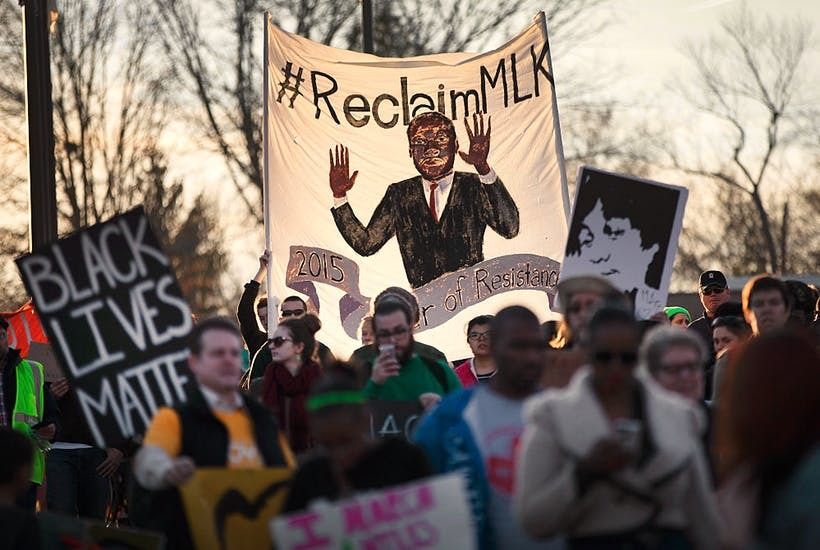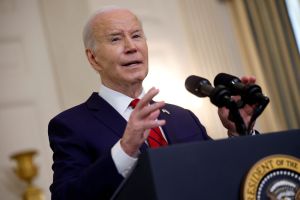Martin Luther King is easily misrepresented in our era of heightened identity politics, and of scepticism towards grand unifying ideals. For him, the campaign for black civil rights was firmly rooted in a very grand moral and political vision. Today’s progressives have largely lost sight of this wider vision; indeed the thought of it embarrasses them. It seems naïve, unrealistic. Its grandeur is more likely to be mocked than honoured. To black activist writers such as Ta-Nehisi Coates (whom I recently discussed here) it seems a mask for complacent racism.
The remarkable thing about King is that he expressed the core ideals of America, and the West, with new intensity and fullness. I can almost hear the sneering at that phrase, ‘the core ideals of America, and the West’ – haven’t we learned to see such idealism as hopelessly naïve? But such sneering is a betrayal of King. He was a believer, perhaps the supreme and exemplary believer, in the ideal of universal human brotherhood. And sisterhood, of course. But therein lies the problem – we have become anxious that ‘sisterhood’ should be added to ‘brotherhood’, but forgetful of what King meant by it. We prefer identity politics to the big vision that he preached.
Yes, preached. The awkward fact is that his was a religious vision. Of course it was simultaneously a humanist vision, but that doesn’t make it non-religious. In fact, King’s message was the supreme marriage of Christian and humanist idealism.
He affirmed the grand narrative of American liberalism: Jefferson’s vision of ‘liberty and justice for all’, a vision that became more fully expressed after the civil war. He didn’t reject such rhetoric as empty, on account of the persistent stain of racism. Rather he claimed it as the proper foundation to build on. The intense idealism at the heart of America must be made real. But surely white America had shown such rhetoric to be hollow, through refusing to act on it? No, this was a sacred vision – despite centuries of failure to put it into practice. It was a sacred vision because it was at heart the Christian vision, of God’s perfect rule, the coming of his kingdom.
Despite the adulation this week, King’s message is embarrassing to most progressive thinkers of today. For two reasons: he believed in the liberal American ideal, which hard-core progressives now scoff at, and he saw this ideal as rooted in religion (especially Christianity, of course, but he sometimes pointed to the role of other religions, too). He had a faith, a defiantly naïve faith you could call it, in the possibility of universal human brotherhood (and sisterhood). As he put it in 1967, while explaining his opposition to the war in Vietnam, the ideal of human unity is a ‘call…that lifts neighborly concern beyond one’s tribe, race, class and nation is in reality a call for an all-embracing and unconditional love for all men. This oft misunderstood and misinterpreted concept – so readily dismissed by the Nietzsches of this world as a weak and cowardly force – has now become an absolute necessity for the survival of man.’
Of course this vision was bitterly contested by racist reactionaries, both in King’s day and since. But it has also been betrayed by progressives who narrow its scope, who prefer divisive identity politics to a unifying political vision. Can you imagine anything like King’s brotherhood-of-man rhetoric coming from the bitter little mouths of today’s secular ‘progressives’?


















